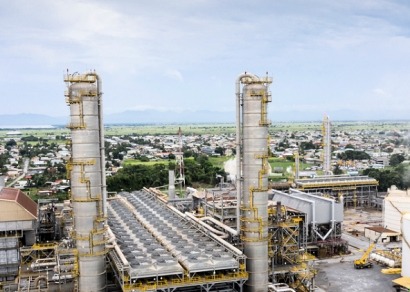
As part of the partnership, Proman and Origin Materials signed an agreement to explore the production and global distribution of low-carbon biofuels.
“We are excited to partner with Proman, a leader in natural gas-derived products with extensive global shipping and supply chain capabilities, to take this step forward in low-carbon biofuels commercialization,” said Origin Materials Co-CEO Rich Riley. “Biofuel is a rapidly growing market. Low-carbon-intensity biofuels made from wood waste reflect the future of biofuels as industry moves aggressively towards decarbonization. Origin’s technology platform is uniquely positioned to deliver these renewable fuels using our ‘oils and extractives’ intermediate stream. We are thrilled to partner with Proman, a company that brings significant expertise across engineering, procurement, and construction related to world-scale sustainable technology development. Over the long-term, we see the potential for biomass-derived, low-carbon-intensity fuels to be used in marine and other transportation fuels, industrial applications, heat and power generation, and more.”
Origin expects to produce bio-based fuels using its patented technology platform, which turns the carbon found in sustainable wood residues into useful products.
Proman’s Chief Executive David Cassidy welcomed today’s agreement, saying: “Certified lower-carbon fuels and feedstocks will play a vital role in enabling the transition to a more sustainable world. From the production of the materials and packaging that we all use every day, to the fuels that power our global supply chains and transport these products around the world, biofuels have huge potential to drive down emissions. That’s why we are delighted to be partnering with Origin Materials, who shares our commitment to innovation and our belief in methanol’s potential to enable more sustainable manufacturing. By combining Proman’s production expertise and extensive distribution network with Origin’s patented technology platform, we will explore new ways to create the building blocks for reduced environmental impact across our everyday lives.”

